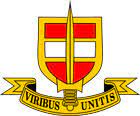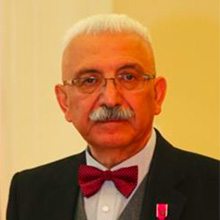
Successful Border Demarcation and Delimitation Process Crucial for a Final Peace Agreement
 By Fuad Shahbazov, Baku-based independent regional security and defence analyst
By Fuad Shahbazov, Baku-based independent regional security and defence analyst
The current border tensions between Azerbaijan and Armenia are not the first and likely not the last. Given this, a successful border demarcation/delimitation process could be a crucial point in paving the way for a final peace agreement between the two adversaries. Therefore, the resumption of direct peace talks is the only rational option.
Last month, shortly after the first anniversary of the 44-day Karabakh war between Azerbaijan and Armenia, saw a new phase of violent hostilities, and the fighting was far from conventional. Deadly skirmishes occurred on the Azerbaijan–Armenia's international border, in a place named Giziltapa (Tsitserrnakar) near Syunik province. According to the Ministry of Defence of Azerbaijan, the tensions flared up due to the Armenian Armed Forces' intensive artillery fires at the positions of the Azerbaijani Armed Forces. In response, the Armenian Ministry of Defence accused the Azerbaijani side of provocation, violating international borders, and spreading disinformation regarding the skirmishes. READ MORE
- EGF Editor |
Published on EGF: 15.12.2021
| Security
-
Risks and Opportunities of the Emerging South Caucasus Regional Order 
 Policy Recommendations from the 21st workshop of RSSC SG/PfP Consortium
Policy Recommendations from the 21st workshop of RSSC SG/PfP Consortium
The Regional Stability in the South Caucasus Study Group (RSSC SG) was proud to resume its activities in a face-to face format in Rome, 7-10 September 2021. On that occasion, the Study Group discussed and subsequently agreed on a number of policy recommendations.
The second Karabakh war was the catalyst for massive changes in the South Caucasus. Certainly, the new territorial realities fit better the internationally recognized territories of both countries, but important challenges remain, making it important for the RSSC SG to meet to spur thinking on the way forward. The conflict was also an opportunity for other regional actors. Georgia deployed uncommon diplomacy and peace-making skills in the aftermath of the combat phase between Armenia and Azerbaijan. While Georgia demonstrated its ability at being an effective bridge between the two belligerents, Russia established itself as the essential arbiter and guarantor of a fragile ceasefire, and of purveyor of security for new lines of demarcation between Armenia and Azerbaijan. Turkey has not waited and sided with Azerbaijan in achieving and securing the new territorial realities. READ MORE
- EGF Editor |
Published on EGF: 08.12.2021
| Security
-
Armenia's Options in the Face of Coercive Azerbaijani Tactics Are Limited  By Benyamin Poghosyan, PhD, Chairman, Center for Political and Economic Strategic Studies
By Benyamin Poghosyan, PhD, Chairman, Center for Political and Economic Strategic Studies
The developments of the last year proved that assessments according to which by taking some 8500 square km of territories in the 2020 Karabakh war, Azerbaijan will be satisfied and an era of peaceful development will be launched for Armenians, were highly exaggerated, and had little semblance to reality.
Since the end of the 2020 Karabakh war, Armenia has faced a new, harsh reality along its borders with Azerbaijan. Some in Armenia hoped that after taking back most of the territories which Baku lost during the first Karabakh war of 1992-1994, an era of regional peace would start in the South Caucasus, while Azerbaijan would agree to continue negotiations to fix the status of Nagorno Karabakh within its 1988 borders. Baku was quite quick to dampen such perceptions. Azerbaijan established an economic region of Karabakh in July 2021 and started to aggressively push forward the narrative that war had ended not only the conflict, but Nagorno Karabakh itself, and thus it was senseless to negotiate over the status of a non-existing entity. READ MORE
- EGF Editor |
Published on EGF: 24.11.2021
| Security
-
Parliamentary Procedures in Service of Democracy  By G.R. Malikova, Doctor of Legal Sciences, Professor at The Academy of the General Prosecutor’s Office of the Republic of Uzbekistan
By G.R. Malikova, Doctor of Legal Sciences, Professor at The Academy of the General Prosecutor’s Office of the Republic of Uzbekistan
The rule of law is ensured in a democratic society through a fair, impartial and effective administration of justice. This type of administration of justice requires independent and impartial judges and prosecutors who ensure the preservation of individual rights and freedoms as well as the maintenance of public order. Regardless of how different prosecutors’ systems are in different countries, they all have one element in common. Prosecutors must make decisions independently and carry out their responsibilities free of outside pressure or intervention, while adhering to the principles of separation of powers and accountability. As the President of the Republic of Uzbekistan Sh. Mirziyoyev rightly noted: “Our people can endure any difficulties, but they will not tolerate injustice”. In this regard, the essence of the mission for prosecutors is to ensure social justice and the rule of law.
READ MORE
- EGF Editor |
Published on EGF: 04.11.2021
| Security
-
The Volunteer Movement  By Embassy of the Republic of Uzbekistan in the Kingdom of Belgium
By Embassy of the Republic of Uzbekistan in the Kingdom of Belgium
Today, the volunteer movement is an integral part of the social sphere, which provides gratuitous assistance to people in difficult life situations. Uzbekistan is at the stage of active reforms. Large-scale transformations open new opportunities for solving actual socio-economic, socio-political, cultural, and humanitarian problems. One of the priority directions of development of Uzbekistan, in addition to improving state and social construction, ensuring the rule of law, and reforming the judicial and legal system, developing and liberalizing the economy, ensuring security, interethnic harmony and religious tolerance, implementing a balanced, mutually beneficial and constructive foreign policy, is the development of the social sphere.
READ MORE
- EGF Editor |
Published on EGF: 25.10.2021
| Security
-
Strengthening the Legal Status of the Ombudsman for Children  By Doniyor Turaev, Deputy Director of the Legislation and Parliamentary Research Institute under the Oliy Majlis of the Republic of Uzbekistan
By Doniyor Turaev, Deputy Director of the Legislation and Parliamentary Research Institute under the Oliy Majlis of the Republic of Uzbekistan
Currently, systematic work is under way in Uzbekistan to implement the provisions of the Convention on the Rights of the Children, the legal and institutional framework for protecting the rights and interests of children is improving. As the international experience shows, today, more than twenty countries have a specialized and independent institution – the Ombudsman for Children. The first office of Ombudsman for Children was established in Norway in 1981. By the beginning of the 21st century, many countries had significantly intensified their work to protect the rights of the child and create some special authorized institutions in this area, and this was due to the need to better ensure the implementation of obligations under the Convention on the Rights of the Child.
READ MORE
- EGF Editor |
Published on EGF: 25.10.2021
| Security
-
Delimitation, Demarcation and Cartographic Manipulation in the Wake of the 44 Days War  By Hayk KOTANJIAN, Lieutenant General (Ret.), D.Sc., Professor of Political Science of the RA, RF, USA (state studies-strategic security studies), Full Member of the Academy of Military Sciences of the RF
By Hayk KOTANJIAN, Lieutenant General (Ret.), D.Sc., Professor of Political Science of the RA, RF, USA (state studies-strategic security studies), Full Member of the Academy of Military Sciences of the RF
In the wake of the 44-day war in 2020, an unprecedented escalation of the process of delimitation and demarcation of the Armenian-Azerbaijani borders has been launched. This was done contrary to the principles and procedure for border delimitation and demarcation recommended by the OSCE Secretariat. The unparalleled pressure on the Armenian population from Karabakh was accompanied by subsequent attempts to undermine the settlement process under the auspices of the OSCE Minsk Group co-chairmanship. Among the arguments substantiating claims to include Nagorno-Karabakh in Azerbaijan, Baku authorities refer to the Azerbaijani-language toponymy, which allegedly has a long history. READ MORE
- EGF Editor |
Published on EGF: 13.10.2021
| Security
-
What's behind the Fresh Tensions between Iran and Azerbaijan?
 By Fuad Shahbazov, Baku-based independent regional security and defence analyst
By Fuad Shahbazov, Baku-based independent regional security and defence analyst
In the period immediately after the 44-day Karabakh war, Baku-Tehran relations remained on the level of pragmatic co-operation, until the new conservative political establishment ascended to power in Iran. Since then, Tehran’s rhetoric against Azerbaijan has shifted from that of “partnership” to open threats that explicitly neglect the partnership atmosphere. Relations between Baku and Tehran have always been unstable, particularly at the beginning of the 2000s. However, they rekindled when both countries became engaged in regional infrastructure and transit projects. READ MORE
- EGF Editor |
Published on EGF: 13.10.2021
| Security
-
Revolutionizing the Turkish Army under Erdogan  By Yeghia TASHJIAN, Beirut-based regional analyst and researcher, columnist, "The Armenian Weekly”
By Yeghia TASHJIAN, Beirut-based regional analyst and researcher, columnist, "The Armenian Weekly”
Back in July, Rich Outzen published a policy paper “Deals, Drones and National Will: The New Era in Turkish Power Projection” in the Washington Institute for Near East Policy highlighting the new strategy of the Turkish Armed Forces, the development of the arms industry and how Ankara is deploying hard power in the region. According to Outzen, the integration of drones, electronic warfare, manoeuvre and precision strike employed by Turkey across technologies and domains (manned/unmanned and ground/air/naval) have been characterized as a new phase of a revolution in military affairs (RMA). An RMA is a hypothesis in military theory about the future of warfare, often connected to technological and organizational recommendations for radical military reform. An RMA occurs when new tactics, technologies and operational concepts enable dramatic increases in ineffectiveness to provide early innovators a marked advantage and force others to adopt the same methods. READ MORE
- EGF Editor |
Published on EGF: 12.08.2021
| Security
-
Assessing Armenians’ Geopolitical Situation  By Alan Whitehorn, Professor Emeritus in Political Science, The Royal Military College of Canada
By Alan Whitehorn, Professor Emeritus in Political Science, The Royal Military College of Canada
Armenia is at yet another critical time. The war losses were substantial and impacted greatly. Violent Azerbaijani-Armenian border incidents continue, with property damage, military personnel injuries and deaths. The risks ahead are significant. Accordingly, it is crucial to assess the geopolitical situation that confronts Armenia, commencing first with key problems and challenges and then exploring some opportunities.
Amongst the pressing issues is the fact that demographically Armenia has far less manpower than Azerbaijan, even if women were conscripted too. Armenia’s population has been declining significantly due to outmigration and this pattern has been accelerating after the recent Karabakh war and various phases of the Covid pandemic. An army historically based on conscription needs to address its critical declining population base. READ MORE
- EGF Editor |
Published on EGF: 11.08.2021
| Security
-
